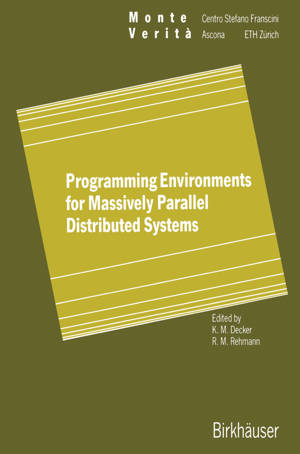
- Afhalen na 1 uur in een winkel met voorraad
- Gratis thuislevering in België vanaf € 30
- Ruim aanbod met 7 miljoen producten
- Afhalen na 1 uur in een winkel met voorraad
- Gratis thuislevering in België vanaf € 30
- Ruim aanbod met 7 miljoen producten
Zoeken
Programming Environments for Massively Parallel Distributed Systems
Working Conference of the Ifip Wg 10.3, April 25-29, 1994
€ 100,95
+ 201 punten
Omschrijving
Massively Parallel Systems (MPSs) with their scalable computation and storage space promises are becoming increasingly important for high-performance computing. The growing acceptance of MPSs in academia is clearly apparent. However, in industrial companies, their usage remains low. The programming of MPSs is still the big obstacle, and solving this software problem is sometimes referred to as one of the most challenging tasks of the 1990's. The 1994 working conference on "Programming Environments for Massively Parallel Systems" was the latest event of the working group WG 10.3 of the International Federation for Information Processing (IFIP) in this field. It succeeded the 1992 conference in Edinburgh on "Programming Environments for Parallel Computing". The research and development work discussed at the conference addresses the entire spectrum of software problems including virtual machines which are less cumbersome to program; more convenient programming models; advanced programming languages, and especially more sophisticated programming tools; but also algorithms and applications.
Specificaties
Betrokkenen
- Uitgeverij:
Inhoud
- Aantal bladzijden:
- 423
- Taal:
- Engels
- Reeks:
Eigenschappen
- Productcode (EAN):
- 9783034896689
- Verschijningsdatum:
- 5/11/2012
- Uitvoering:
- Paperback
- Formaat:
- Trade paperback (VS)
- Afmetingen:
- 156 mm x 234 mm
- Gewicht:
- 612 g

Alleen bij Standaard Boekhandel
+ 201 punten op je klantenkaart van Standaard Boekhandel
Beoordelingen
We publiceren alleen reviews die voldoen aan de voorwaarden voor reviews. Bekijk onze voorwaarden voor reviews.







